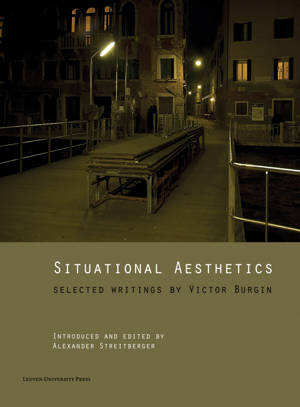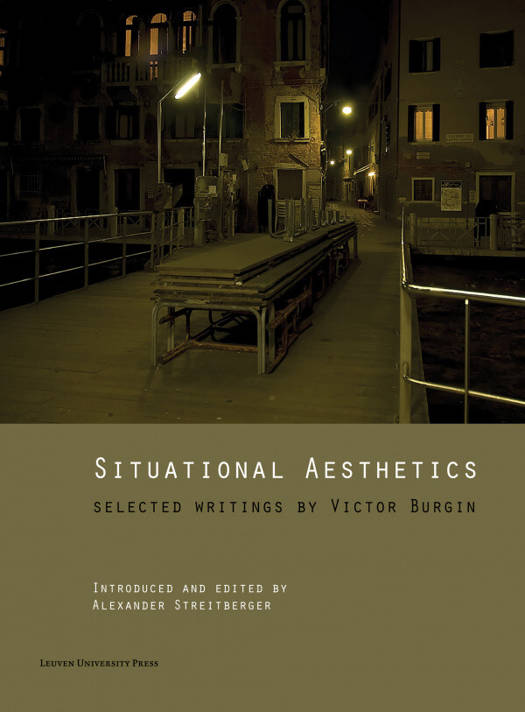
- Retrait gratuit dans votre magasin Club
- 7.000.000 titres dans notre catalogue
- Payer en toute sécurité
- Toujours un magasin près de chez vous
- Retrait gratuit dans votre magasin Club
- 7.000.0000 titres dans notre catalogue
- Payer en toute sécurité
- Toujours un magasin près de chez vous
Description
Highly influential both as an artist and as a theoretician, Victor Burgin figures among the most insightful thinkers on visual culture in recent times. His writings focus on the production of meanings and affects through images "at the intersections of subjective desire and sociopolitical organization" and draw on diverse representational practices (photography, film, painting, advertising, television, and the Internet) and theoretical fields (semiotics, psychoanalysis, feminist theory, and cultural studies).
The essays in this volume provide a succinct overview of Burgin's rich and multifaceted work during the last forty years--from its origins in debates within conceptual art to its present concern with everyday perception in the environment of global media. The selection includes such classic essays as "Situational Aesthetics" and "Photographic Practice and Art Theory," together with less widely known articles as "Work and Commentary" and the previously unpublished essays "Shadows, Time, and Family Pictures" and "Monument and Melancholia."
The essays are arranged chronologically in sections to represent four salient phases of Burgin's preoccupations: Conceptual Art and Photography; A Psychical Realism; The City and Global Media; and Infinite Film. Each section is preceded by an exchange between Burgin and the book's editor, Alexander Streitberger, that introduces the main lines of thought. Examples from Burgin's visual works, selected by the editor in consultation with the artist, accompany each section.
Spécifications
Parties prenantes
- Auteur(s) :
- Editeur:
Contenu
- Nombre de pages :
- 432
- Langue:
- Anglais
- Collection :
- Tome:
- n° 9
Caractéristiques
- EAN:
- 9789058677686
- Date de parution :
- 15-05-10
- Format:
- Livre broché
- Format numérique:
- Trade paperback (VS)
- Dimensions :
- 171 mm x 229 mm
- Poids :
- 1006 g

Les avis
Nous publions uniquement les avis qui respectent les conditions requises. Consultez nos conditions pour les avis.






